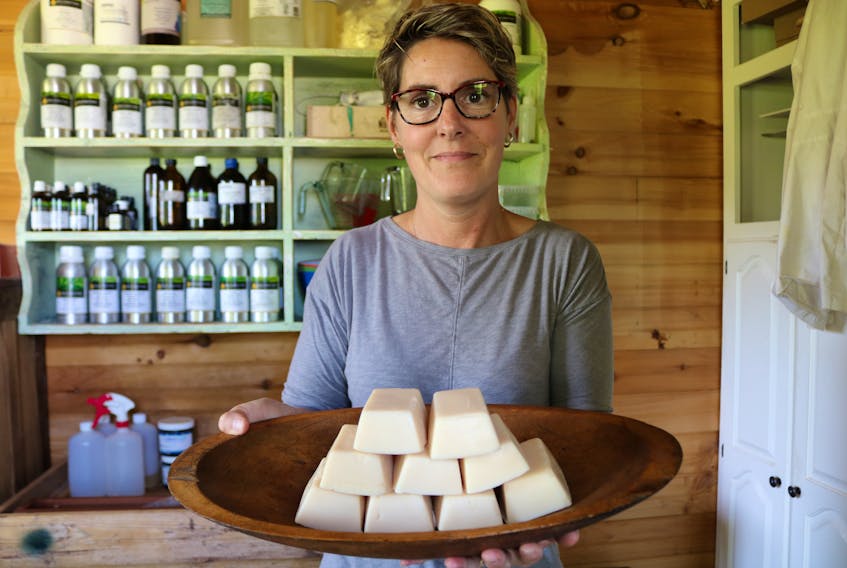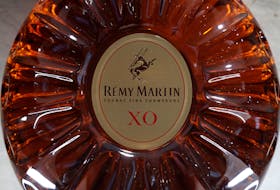MACDOUGALL, P.E.I. – Those looking to live a greener lifestyle will have another outlet to buy all-natural shampoos thanks to a business located near Grand River.
Recently The Farmer’s Wife a handmade soy candle and soap business recently began producing shampoo bars.
“I’ve had a lot of people inquire if I made shampoo bars. And because I had requests I decided to try it. I’ve made a liquid shampoo, but not a solid form,” explained Leslie MacKinnon, owner of The Farmer’s Wife.
MacKinnon packages her soap and shampoo bars with a single slip of compostable paper. And in addition to lessoning package waste, the ingredients in the shampoo bars are safer not only for a person’s head but also the earth.
“Commercial shampoos and all-natural homemade shampoo are very different. With commercial shampoos, they strip your hair’s natural barriers and oils. It’s often why you have to use a conditioner. Because the way they work is by stripping the hair and then coating it in something to protect it.”
But with homemade shampoo, they are filled with oils and materials that hair natural produce and love, she said.
“Your hair won’t have the same reaction as when it is washed with commercial shampoos. You’re not going to get that bubbly foam that you’re used to but rather a thick creamy lather. It’s why the shampoo bars may be a fad, because it will take a couple of week to notice the differences and adjust. Natural products usually consist of jojoba oil and argon oil, which is very nourishing to hair, and not harmful to the environment.”
They’re also travel friendly, she said.
“When you travel you have a bottle for you shampoo, your condition and your body wash. But because of the ingredients in shampoo bars, it could be used as body soap bar as well. And because of the nourishing oils, you won’t need a conditioner.”
In post-secondary school, MacKinnon studied environmental economics and worked for Island Waste Watch to help establish current programs in place.
“It’s my background to be more aware of what we’re putting in the ground and throwing out. One of these bars isn’t just replacing one bottle of shampoo. It’s replacing about two-and-a-half to three bottles. Not only are you going to be protecting your hair, but it will also be better for the environment, from reduction of packaging to not releasing those chemicals into the earth.”
Reuse and recycle
Not ready to ditch the commercial shampoo you love? Don’t know what to do with empty detergent bottles? Try these fast tips to repurpose and recycle the containers:
– Recycle personal care products properly. On the Island, some personal care products in the household products can contain phosphates, chemicals and other ingredients that won’t break down in composting or may contaminate other categories.
– On the Island, plastics labelled 1, 2 ,3 ,4 or 5 are recyclable with metals, plastic, glass and milk cartons. In some cases, this can include shampoo, conditioner and detergent bottles
– Clearly label bins to ensure proper sorting of various recyclable materials
– Upcycle cleaned detergent bottles into a watering can and other gardening storage
– Get creative. Use the bottles for the body of a car, airplane or submarine
– Turn them into shower or sink caddies









